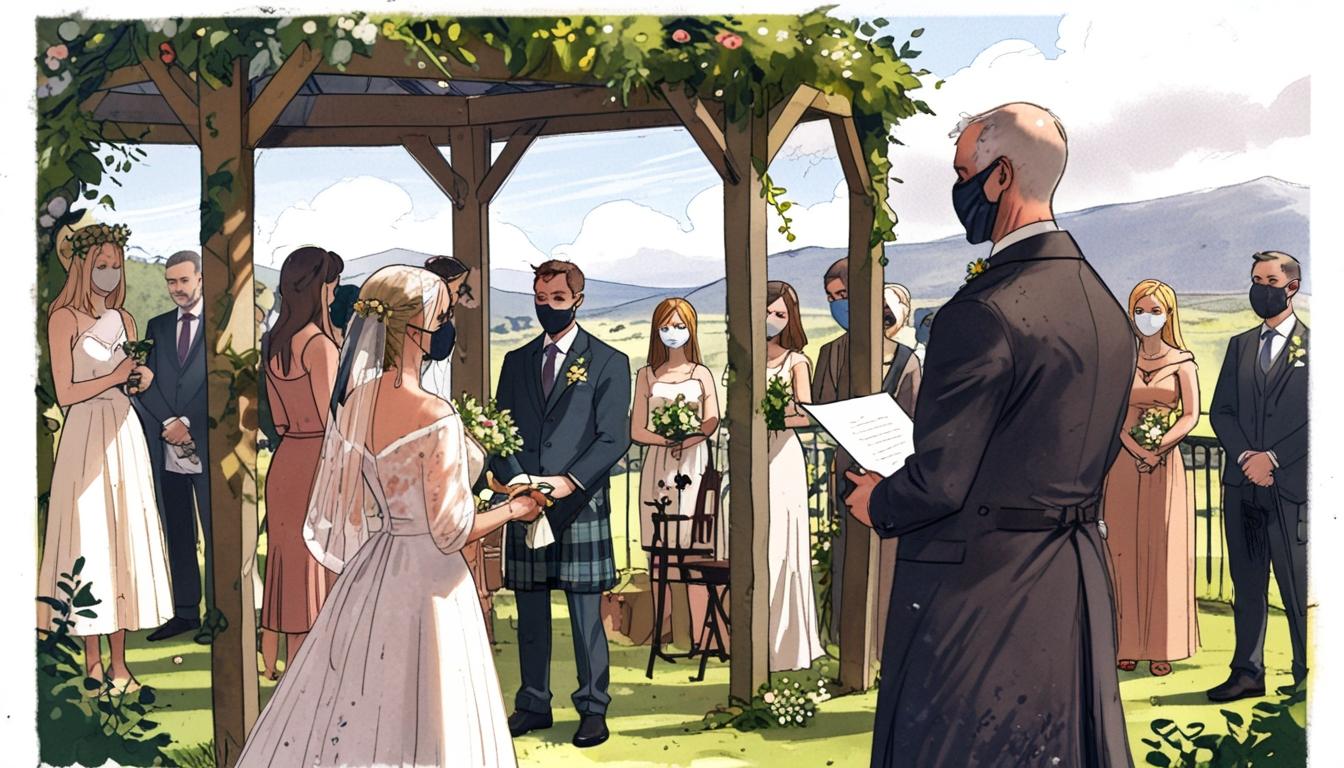The Scottish Covid-19 Inquiry has commenced hearings focusing on the impact of worship and life events during the pandemic, drawing testimony from representatives of various religious and secular organisations. These hearings have revealed the significant and sometimes unusual effects of pandemic restrictions on ceremonies such as weddings, as well as the challenges faced by faith leaders and communities.
Fraser Sutherland, representing the Humanist Society Scotland, described one pandemic restriction banning cohabiting couples from kissing during their wedding ceremonies as “bizarre.” Speaking to The Irish News (Belfast), he elaborated that despite some relaxation in other mask mandates, this particular rule remained unusually strict. “In humanist tradition most of those couples would be already living together,” he remarked, highlighting the restriction's particular incongruity. Sutherland also recounted changes in wedding trends post-pandemic, including an increase in smaller weddings and more outdoor ceremonies. He explained, “Some couples decided they didn’t want to get married, some people’s relationships ended. We did also see a significant increase in small weddings. There were quite a lot of people who were relieved they didn’t have to have a big wedding. I think a lot of couples feel pressure from family and friends to have a big ceremony. I think quite a lot of people felt they had a licence to do what they wanted.” He further noted difficulties in enforcement as some wedding venues, pressed by financial concerns, sometimes allowed more guests than permitted, leading to conflicts between couples, celebrants, and venue operators.
From the Free Church of Scotland, Rev Donald MacDonald, based on Tiree, Skye, recounted how the pandemic brought elopement weddings in the area to a halt. “All these arrangements in place for a year to 18 months had to be cancelled,” he said. He also spoke about attempts to consult with government officials to seek permissions for weddings, citing their church’s traditional stipulation that cohabitation before marriage is not acceptable. The pandemic therefore posed particular challenges for couples preparing to marry within this tradition.
Ephraim Borowski, of the Jewish Council of Scotland, emphasised the confusion and lack of clear guidance during the pandemic. “It might have been useful to have a hotline, or some kind of exception granting mechanism, completely general, which would give us a definite answer, I think that would have helped,” he said. Borowski also pointed to a lack of historical precedent being referenced during the crisis, noting, “I wasn’t aware of any time anyone said about the 1919 Spanish flu pandemic so as far as we knew nothing had been learned from that.” He framed this inquiry as an opportunity to see if lessons are retained for future events.
The inquiry also heard from Rt Rev Brian McGee of the Bishops’ Conference of Scotland, who spoke about the impact of restrictions on pastoral care. He explained that during hospital visits, limitations meant that patients, including those seriously ill or dying, along with hospital staff, were deprived of in-person pastoral support. “We’ve talked about ceremonies but when people were in hospital, they were looked after by NHS staff who were in fear for their own lives,” McGee commented. “When people are sick and they’re nervous they would want the comfort of a visit, some pastoral care and prayers being said for them.” He highlighted that faith leaders were not informed in advance about the decision to close places of worship during the second lockdown, only learning about it after implementation. He also noted that Mass could only be celebrated in churches, which further restricted pastoral outreach.
The hearings underscore the broad social and cultural ramifications of the pandemic on religious and life ceremonies across Scotland, touching on issues of compliance, community support, and adaptations in the face of public health measures. The Scottish Covid-19 Inquiry continues its work to collect testimonies and insights on how the pandemic and associated restrictions shaped religious practices and significant life events.
Source: Noah Wire Services
